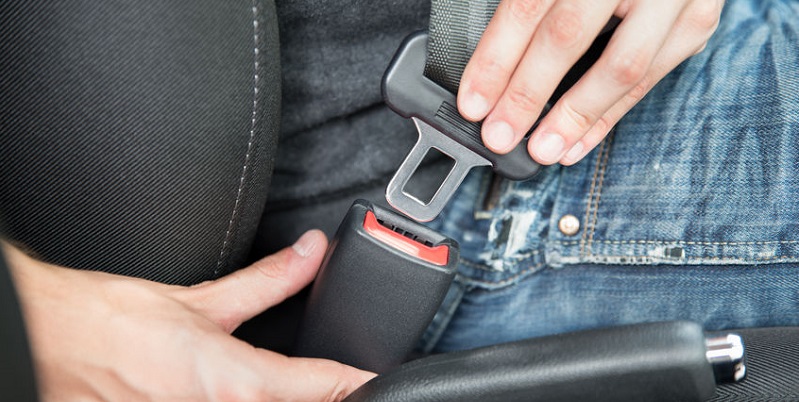27 million Americans don’t buckle up. Don’t become a statistic. Buckle up every time you get in a car. It could be the most important few seconds you’ll ever spend.
It’s been nearly 25 years since the first seat belt enforcement mobilization took place in the United States. In 1993, North Carolina held the first “Click It or Ticket” statewide campaign as a means of enforcing seat belt laws.
Years later, what started out as a local effort has become a nationwide campaign, according to the National Highway Transportation Safety Administration (NHTSA). In 2015 alone, seat belts saved nearly 14,000 lives. And while 90 percent of Americans do use seat belts, there still are more than 27 million people who don’t buckle up, and some of those live right here in Colorado.
1,300 Ticketed for Riding Unrestrained in Colorado
In 2016, despite an emphasis on traffic safety, more than 600 people died on Colorado roads, an 11 percent increase in traffic fatalities from 2015. According to officials, half of those killed in car accidents in Colorado were not wearing seat belts.
While not using seat belts is a problem across the state, it’s much more common in rural areas. So, law enforcement recently focused on those areas during its last Click It or Ticket mobilization. Police say the campaign, held at the end of March through the beginning of April, resulted in more than 1,300 citations.
Not only were drivers ticketed for not wearing a seat belt, but nearly 70 drivers were issued citations for not buckling up children younger than 16. Even more worrisome, authorities said they found 18 toddlers not in car seats and 27 children not in required booster seats, putting these young lives in danger.
Children Rely on Grownups to Buckle Them Up
While a study from 2002-11 showed that deaths resulting from car accidents decreased by 43 percent among children age 12 and younger, still, about 9,000 children were killed in accidents. The study also showed that in 2011, one in three children killed in crashes died as a result of not being properly restrained.
The very young rely on adults to buckle them in, and those old enough to fasten a seat belt must be reminded to do so every time they get into a car. Darrell Lingk, director of the Office of Transportation Safety at the Colorado Department of Transportation, noted:
Seat belts are the primary solution to prevent the increasing number of passenger vehicle traffic deaths in Colorado. Driving slow or just a short distance doesn’t make wearing a seat belt any less important; even crashing at 25 mph is like falling from a second-story window.
Know Colorado’s Seat Belt Law
Colorado requires all drivers age 18 and younger to wear a seat belt. This also applies to all passengers in a car driven by someone 18 or younger. If police spot a car driven by someone who seems to fall within that age range, authorities can stop the vehicle for a possible violation of state law.
All passengers younger than 16, regardless of the age of the driver, must be properly restrained, meaning child seats and booster seats must be properly installed.
When it comes to adult drivers and adult passengers in the front seat, Colorado has what is called a secondary enforcement law, which means police can write you a ticket if you are stopped for another violation, but you can’t be stopped solely because you, as a driver or front-seat passenger, were not wearing a seat belt.
The bottom line is this: Seat belts are known to dramatically reduce the risk of death and injury if you are involved in a car accident. Seat belts prevent drivers and passengers from being ejected from the vehicle in a crash. It only takes a few seconds to buckle up. Do it every time you get in a car — it may end up being the best use of a few seconds of your time.

